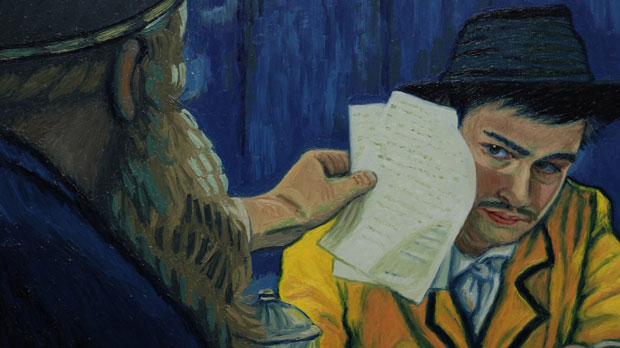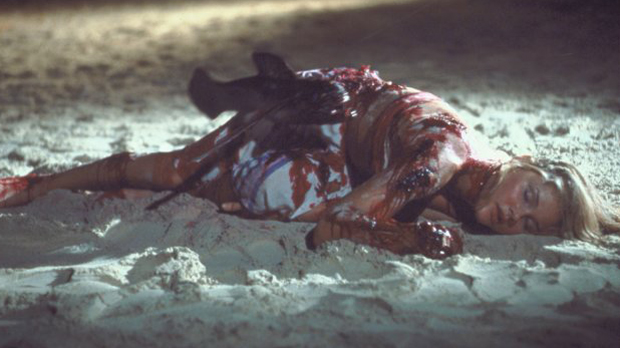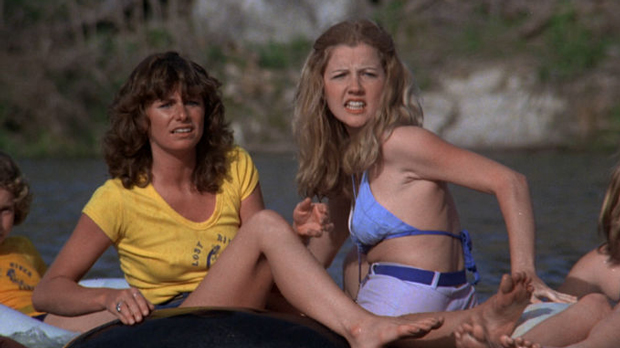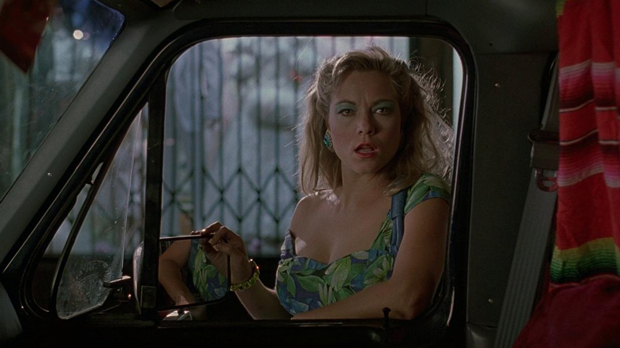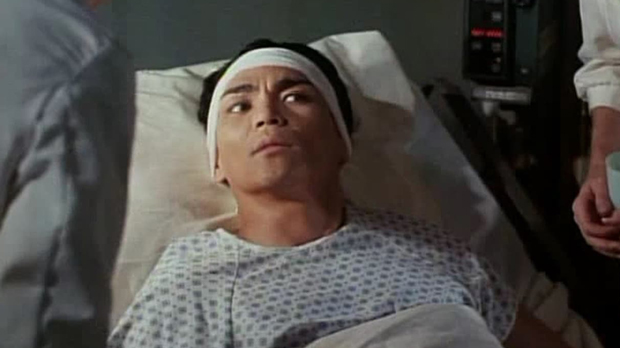 Loving Vincent (2017) Good Deed Entertainment/Drama RT: 94 minutes Rated PG-13 (mature thematic elements, some violence, sexual material) Director: Dorota Kobiela and Hugh Welchman Screenplay: Dorota Kobiela and Hugh Welchman Music: Clint Mansell Cinematography: Tristan Oliver Release date: October 6, 2017 (Philadelphia, PA) Cast: Robert Gulaczyk, Douglas Booth, Jerome Flynn, Saoirse Ronan, Helen McCrory, Chris O’Dowd, John Sessions, Eleanor Tomlinson, Aidan Turner.
Loving Vincent (2017) Good Deed Entertainment/Drama RT: 94 minutes Rated PG-13 (mature thematic elements, some violence, sexual material) Director: Dorota Kobiela and Hugh Welchman Screenplay: Dorota Kobiela and Hugh Welchman Music: Clint Mansell Cinematography: Tristan Oliver Release date: October 6, 2017 (Philadelphia, PA) Cast: Robert Gulaczyk, Douglas Booth, Jerome Flynn, Saoirse Ronan, Helen McCrory, Chris O’Dowd, John Sessions, Eleanor Tomlinson, Aidan Turner.
Rating: ***
In the 16 years since the Academy started awarding Best Animated Feature, 11 of the winners have been Disney films. The last non-Disney movie to win the golden statuette was 2011’s Rango. This year, there’s no clear-cut winner so far. Do you honestly think Cars 3 will even be nominated? Overall, it hasn’t been a very strong year for animated films. The only ones I really liked are The Boss Baby and Captain Underpants. Looking ahead, I have high hopes for Coco (opening November 22). It looks really cool. It might even end up winning. If it’s any good, I’m all for it.
In a perfect world, the Oscar would be given to the animated film that shows the most originality and imagination. For me, that film is Loving Vincent. In terms of style, it’s a true original. Each of its 65,000 frames is an oil painting on canvas created by a team of 115 painters using the same style as Vincent Van Gogh, the subject of the movie. It took ten years to complete this film. A task such as this has never been attempted before and it’s gratifying to see that the filmmakers and artists didn’t labor in vain. What they’ve created is positively mesmerizing. The images pulsate with life. The stars in the nighttime sky flicker. Every scene contains bursts of kinetic energy. There’s a fluidity to this style of animation. The effect is comparable to Richard Linklater’s Waking Life. Loving Vincent is a feast for the eyes.
The story plays a lot like Citizen Kane. One year after the death of the tortured artist, a postmaster (O’Dowd, Calvary) tasks his son Armand (Booth, 2013’s Romeo and Juliet) with delivering a letter written by Vincent to his younger brother Theo. Armand is an aimless sort with a penchant for drinking and brawling; finding the letter’s recipient gives him temporary purpose.
He goes to Paris where he learns from paint supplier Pere Tanguy (Sessions, Mr. Holmes) that Theo has also died. After hearing about Vincent’s journey from unemployable failure to prolific artist, Armand goes to the scenic rural village of Auvers-sur-Oise to investigate the circumstances of Vincent’s death. Did he die of a self-inflicted gunshot wound as everybody claims or did something else happen? He speaks with everybody who knew him during the last weeks of life including the local innkeeper’s daughter Adeline Ravoux (Tomlinson, The White Queen) and Dr. Gachet (Flynn, Ripper Street) who treated him after his mental breakdown. He also speaks to Gachet’s daughter Marguerite (Ronan, Brooklyn) who may or may not have been romantically involved with the artist. Some recall him as a genius, others as a madman.
Loving Vincent has but a single flaw, style definitely trumps substance. The storyline is rather standard and not as gripping as one would hope. Because of this, it’s easy to get lost in the visual aspects and lose track of the story. However, I do like the Citizen Kane flashback structure and how the scenes with Vincent are presented in film noir-like black-and-white. It makes sense since Vincent is evoked mainly through the dialogue of other characters a la The Maltese Falcon. I also like how many of his paintings- most notably, The Starry Night- are incorporated into the visual tableau.
The voice talents do a good job. The score by Clint Mansell is beautiful and haunting. Of course, a cover of the Don McLean song “Vincent” (aka “Starry, Starry Night”) plays over the end credits. It adds an extra level of emotionalism to it. What directors Dorota Kobiela and Hugh Welchman have accomplished with Loving Vincent is nothing short of miraculous. I’m sure there are those who felt that their labor of love was an act of insanity and while it’s not wholly successful as a film, it is quite a visual feat. For this reason alone, the Academy should seriously consider giving this one that coveted statuette. Disney can wait until next year (or the year after) to take home Oscar number 12.
